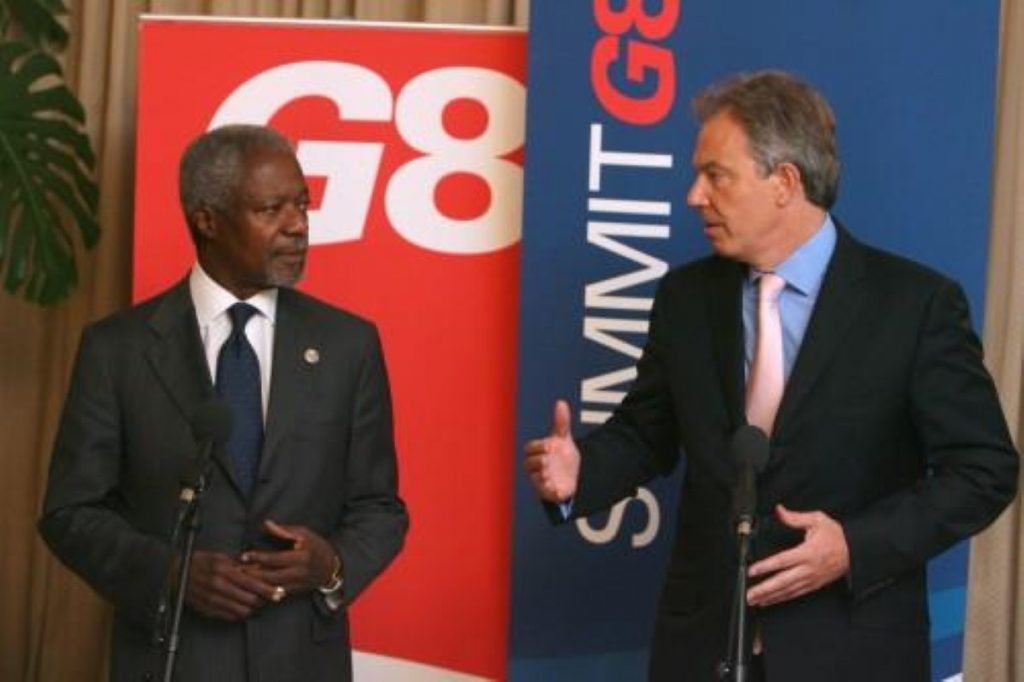Blair backs international force in Middle East
Deploying an international force in the Middle East is the “only way” to restore peace and stability in the region, Tony Blair said today.
The prime minister said the UN deployment could stop Hizbullah attacking Israel, and give the Jewish state a reason to stop its attacks on the militant group.
He was speaking from the G8 summit in St Petersburg, where talks on climate change, energy and world trade have been overshadowed by the violence in the Middle East.
Today is the sixth day of conflict, as Israel bombs southern Lebanon and Beirut in search of two soldiers captured by Hizbullah last Wednesday, and the group responds with rocket attacks on Israeli territory, including the city of Haifa.


Yesterday the G8 leaders released a statement expressing their “deepening concern” about the situation, noting the root cause of the problem was the absence of a “comprehensive Middle East peace”.
But they said the immediate crisis was caused by “extremist forces”, and warned they “cannot be allowed to plunge the Middle East into chaos and provoke a wider conflict. The extremists must immediately halt their attacks”.
They also criticise Israel for its response to the capture of the two soldiers, and urge restraint. They say that “while exercising the right to defend itself, [it must] be mindful of the other strategic and humanitarian consequences of its actions”.
In typically cautious language, the statement also welcomes “an examination by the UN security council of the possibility of an international security / monitoring presence”.
But this morning Mr Blair went further, telling reporters: “The only way we are going to have a cessation of violence is if we have an international force deployed into that area.”
He said the force could “stop the bombardment coming over into Israel and therefore gives Israel a reason to stop its attacks on Hizullah”.
The prime minister was speaking after a meeting with Kofi Annan on the issue, when the UN secretary general also expressed his support for some kind of international force.
“I intend to pursue this with the other leaders, as I have with the prime minister [Blair], later on. Several of the countries here are also key members of the security council and I expect them to work with us to get the package that will push this forward,” he said.
British foreign secretary Margaret Beckett said there were two issues being discussed by the G8 leaders today – how to deescalate the situation and then how to move towards a ceasefire between Israel and Hizbullah.
“Maybe we need some way to enforce that ceasefire,” she said. “It’s how you maintain that, that’s the issue we will be discussing.”

